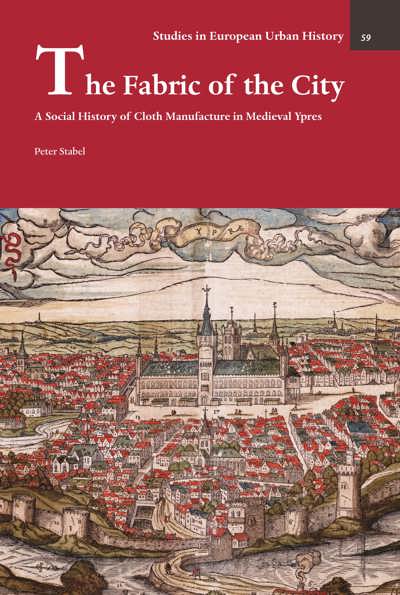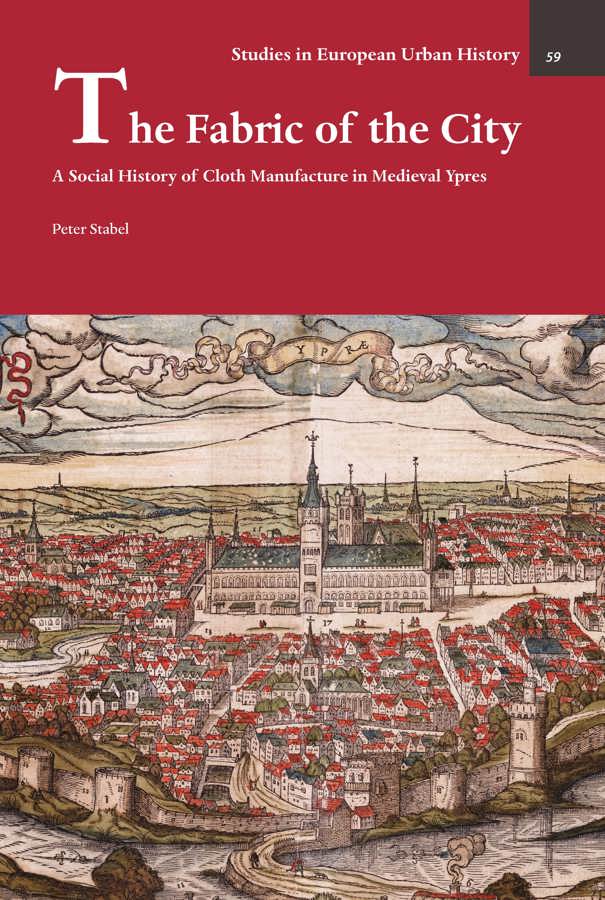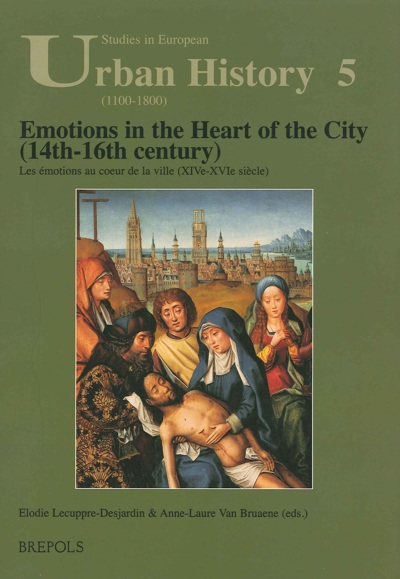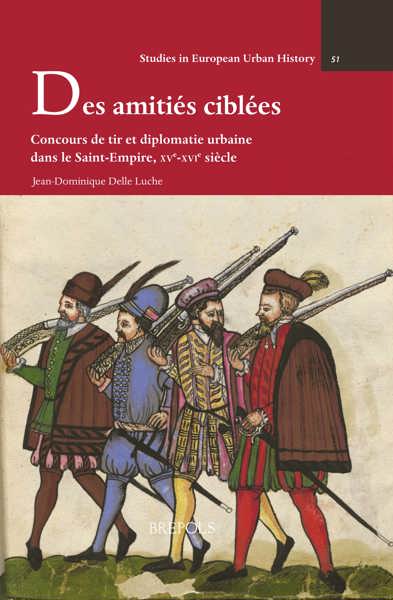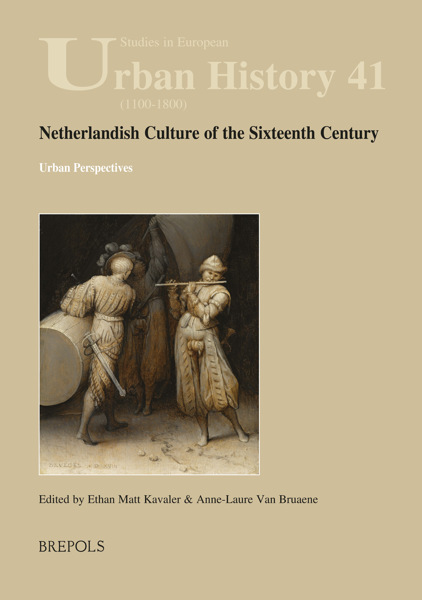
- Pages: 278 p.
- Size:178 x 254 mm
- Illustrations:18 b/w, 10 tables b/w.
- Language(s):English
- Publication Year:2022
- € 94,00 EXCL. VAT RETAIL PRICE
- ISBN: 978-2-503-60051-2
- Hardback
- Available
- € 94,00 EXCL. VAT RETAIL PRICE
- ISBN: 978-2-503-60052-9
- E-book
- Available
Ypres, the most important cloth city in thirteenth-century Europe, provides the ideal example for unravelling how cloth shaped social relations in the medieval city.
“Ein Glossar mit den Fach- und Quellenbegriffen erleichtert das Lesen dieser anregenden wirtschaftshistorischen Studie, die insbesondere durch ihren multiperspektivischen Zugriff überzeugt." (Thomas Ertl, in Sehepunkte, 23/5, 2023)
"The Fabric of the City. A Social History of Cloth Manufacture in Medieval Ypres is a valuable up to date synthesis of the scattered archival data relating to the urban history of medieval Ypres and a comprehensive history of Ypres cloth’s manufacture. Focusing on the dynamics that shaped the social identity and the economic potential of one of the most industrial medieval cities in the Low Countries, Peter Stabel draws a nuanced picture of what made the »Fabric of the city« and a social history of cloth manufacture in medieval Ypres." (Dörte Eriskat, dans Francia-Recensio, 3, 2023)
“This book brings the latest insights of continental scholars to the notice of Anglophone readers.” (CHRISTOPHER DYER, in Medieval Archaeology, 67/1, 2023, p. 242)
Peter Stabel teaches medieval and urban history at the University of Antwerp’s History Department. He is chair of the Centre for Urban History at the University of Antwerp and president of the European Association for Urban History. He publishes widely on the social history of towns in the medieval Low Countries, more specific on guild life, economic organization, social inequality and gender. He is currently preparing a synthesis on city life in medieval Latin Europe, the Byzantine Empire and the Islamic World.
Textile industries were one of the driving forces of the urbanisation process in medieval Northwest Europe, and nowhere was their impact so profound as in Flanders, where almost all larger and smaller cities were involved in manufacturing woollens from the 12th to the 16th century. Ypres, the third city in the county, was perhaps the most important concentration of industrial labour and capital in this period. In their heyday in the 13th and 14th centuries Ypres woollens were exported all over Europe and Ypres entrepreneurs and textile workers were able to adapt in very flexible ways to changes in demand. This book investigates not only what the impact of cloth manufacture was on urban society, it also tries to unravel the social mechanisms of industrial development in late medieval cities. It focuses on social inequalities and on the often difficult relationship between the various stakeholders in the urban cloth industry: merchants, entrepreneurs, guild masters and skilled and unskilled workers. Through the analysis work practices, wage levels, investment strategies, gender issues and political aspirations, it unravels how urban industries in the pre-industrial era shaped social relations in the city, how they moulded the urban fabric.
Acknowledgements
Money Matters
Introduction. Growth and Decline of a Textile City
Chapter 1. Flemish Resilience? Cloth and its Markets
Chapter 2. Of Weaving Looms, Spinning Wheels and Fuller’s Troughs. Cloth and Technology
Chapter 3. The Rise and Fall of Industrial Suburbia. Cloth and the Urban Fabric
Chapter 4. The Boinebrokes of Ypres. Cloth and Mercantile Capital
Chapter 5. The Clothiers’ Century. Cloth and Entrepreneurship
Chapter 6. The Rules of the Game. Cloth, Labour and Guilds
Chapter 7. All in a Wage… Cloth and its Rewards
Chapter 8. ‘Whether He or She’. Cloth and Gender
Chapter 9. A Time to Protest. Cloth and Revolt
Chapter 10. Roads of Capitalism
Bibliography
Glossary of textile terms (in the Ypres sources)
